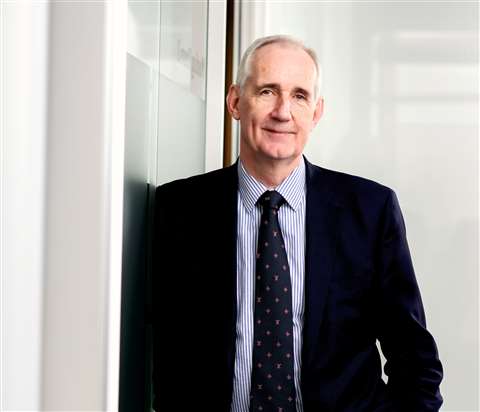64% of supply chain firms not ready for Net Zero
21 September 2021

Over half of UK construction and infrastructure supply chain companies admit to not being ready for the transition to net-zero carbon, according to a survey conducted by Balfour Beatty and the Supply Chain Sustainability School.
The research was carried out between June and August of this year. It targeted nearly 40,000 of the construction and infrastructure industry’s supply chain partners.
The ‘Greening the Chain’ survey, which included a “representative sample of 175 companies of all sizes” showed that 64% of companies believe the construction sector is not currently ready for the transition to net-zero carbon.
While the survey revealed that just under 90% of businesses are already implementing (or developing) a carbon reduction strategy, it also found that 11% of business are not currently investing any of their profits in low or zero carbon products, materials or services, and that around 36% are only investing under 5%.
Despite this, 74% of respondents thought the UK Government’s push for Net Zero was a positive opportunity for their business, with only 13% viewing it as a risk.
Balfour Beatty published its findings ahead of the United Nations climate change conference (COP26), which will take place in Glasgow, Scotland, in November, to promote more industry collaboration in the drive to meet climate goals.
 Leo Quinn, Balfour Beatty Group Chief Executive
Leo Quinn, Balfour Beatty Group Chief Executive
Leo Quinn, Balfour Beatty Group Chief Executive, said, “The climate emergency is probably the biggest global societal challenge we have ever faced. It’s a challenge that will require all of us to pull together in the same direction.
“The United Nations Climate Change Conference is a welcome opportunity to accelerate this process forward, as we work in tandem with businesses across our industry and beyond to drive rapid, meaningful change.”
The data also identified a number of factors that are making it difficult for firms to transition to Net Zero.
Major barriers include the cost of adopting low-carbon practices and equipment, and the lack of early collaboration in the design stage of projects.
Contributing to the research, Alan Jones, Strategic Accounts Director at Speedy Service, said, “A perceived premium to lower carbon options from customers has held back some uptake of sustainable technologies.”
Likewise, Megan Adlen, Group Sustainability Director at Travis Perkins, said, “Cost is still a really big factor when it comes to driving change at pace and at scale.
“There will be inevitably an associated cost to using new, lower carbon products at scale. It will probably come down over time, but, understandably, no one wants to have to absorb those costs.”
Additionally, 78% of survey respondents said the “sector does not have enough of the right skills available” to facilitate the transition to a low-carbon economy, and that the poor availability of low or Net Zero carbon materials” is a hinderance.
The published survey report said, “Unfortunately, 50% say they struggle to get the new, lower carbon products, materials and processes we so urgently need, adopted by customers due to the risk averse nature of the sector and the ongoing overriding focus on short-term cost.
“These are issues that need addressing with urgency if we are to decarbonise the built environment.”
Balfour Beatty said the survey aimed “to understand the barriers, perceived or otherwise, issues and opportunities faced by the sector in achieving Net Zero by 2050”, also identified a number of “solutions” that could address these challenges.
According to the survey, 92% of respondents identified “bringing in the supply chain as early as possible and considering carbon from the outset” as one of the best ways to improve project carbon emissions.
As would “more support from the Government for smaller companies in the construction supply chain to obtain sustainable materials”.
A number of industry leaders commented on the survey’s findings; Tim Burnhope, Chief Innovation and Growth Officer at JCB, said “We’re going to need a mix of technologies to deliver a zero-emissions future.
He added, “One size will not fit all – we mustn’t end up down a cul-de-sac that slows down efforts to decarbonise.”
Similarly, Adlen said, “The industry needs to get to a point where there’s a shared understanding of the metrics around carbon.
“It’s a bit of a tangled mess at the moment, which increases the risk of ‘greenwashing’. It’s also complicated and burdensome for manufacturers when everyone wants information in slightly different ways.”
STAY CONNECTED



Receive the information you need when you need it through our world-leading magazines, newsletters and daily briefings.
CONNECT WITH THE TEAM








